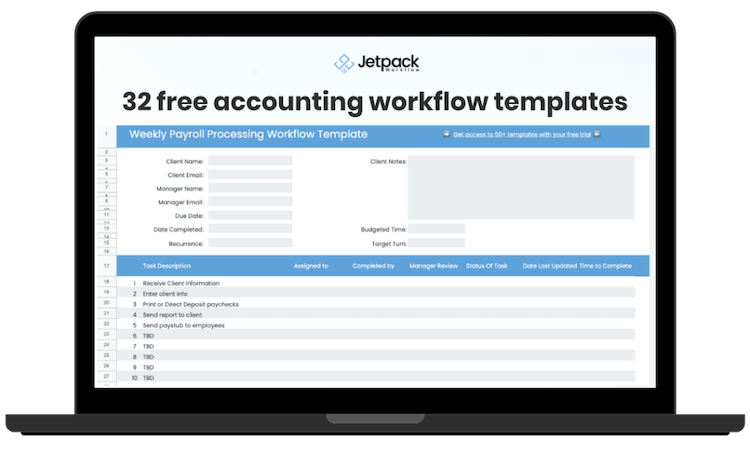Whether you are looking to retire from the profession and want to sell off your practice, have a merger in the works, or need to acquire a CPA firm, there is always one top question— what is the firm’s value?
Unfortunately, there is no one-size-fits-all answer to this question. How much a CPA firm is worth will depend on several factors. It will also depend on your point of view as a buyer or seller?
This article will help you understand how to value a CPA firm, the factors that could affect the valuation price, and how to make an offer more attractive.
How to Value a CPA Firm
Firms are generally valued using two methods:
- One time gross revenue
- Multiple of net cash flow
Arguably the most widely used valuation method is one-time gross. In this method, the buyer pays an agreed fixed amount for every $1 of gross revenue generated in the latest financial year.
The second valuation method – multiple of net cash flow – is not as straightforward. The multiple varies between firms and parties involved in the transaction. It will be determined by several variables, including the upfront cash investment, retention period, duration of the payout period, and the firm’s profitability.
Upfront Cash Investment
Upfront cash investment refers to how much the buyer is willing to pay as a down payment. It will depend on several issues, primarily operational. For instance, a tax-oriented practice selling before tax season would warrant a higher price and down payment than selling it after the tax season.
Retention Period
Usually, the sale of a firm will require a certain client retention period after closing the deal. A good scenario is when the sale is on an earn-out payment strategy. If the seller accepts a 25% payout over the next four years from its revenue, they will receive the remaining balance from fee collections of retained clients within this period of time. This duration is the retention period. Although some keep this as short as two years, some structure depends on fee collections and client retention for the period.
Duration of The Payout Period
Duration of the payout period is how long it will take the seller to receive all the sale money from the buyer. The period can be 10 years or more (larger firms typically have an extended payout period). Smaller firms have a shorter payout period, ranging from 3 to 7 years. This matters because buyers evaluate a purchase’s profitability based on its future cash flows. A more extended payout period leads to smaller payments and higher cash flows.
Profitability
The profitability variable is based on the buyer’s expected profits, not the seller’s historical values. The buyer’s profitability and seller’s multiple could increase if the buyer expects:
- To get a firm with low and no incremental overhead expense increases
- Creating revenue synergies by selling additional services during the off-season
- Capitalizing on cost synergies, like rent reduction or restructuring an existing office lease
The above four variables – upfront cash investment, retention period, duration of the payout period, and profitability – produce the multiple used in valuing a practice when combined.
For example, a firm for sale with less upfront money, longer retention, and longer payout periods should have higher profitability for the buyer and a higher multiple for the seller.
Extra: Are you ready to grow your firm and boost revenue? We took the best strategies and insights from 100+ interviews with our customers. Download our exclusive book,
Double Your Accounting Firm for free.
5 Factors Affecting the Value of a CPA Firm
While these valuations are great pointers of how much your firm might be worth, the final price will ultimately depend on several factors.
1. Size of the Firm
Larger firms tend to attract more buyers than small firms. That’s because buyers are mostly looking at the firm’s gross revenue and the talent pool.
On the other hand, many buyers are ready and willing to buy a small CPA firm as long as they perceive it is large enough to support their future business. Smaller firms, especially those owned and operated by the owner, are easier to manage. These become more attractive to buyers hoping to use financing for the acquisition process.
2. Profitability
In addition, the firm’s profitability will also have a significant impact on the value, regardless of its size. The more positive cash flow, the more attractive the firm, and vice versa. Buyers will be looking at the firm’s billing rates and fee structures. Those with high figures will get more attention from buyers as they translate into a better bottom line. For many buyers, what matters most is the gross revenue and not the cash flows because expenses and synergies are often easier to control.
3. Location
The firm’s location will significantly impact the number of buyers it attracts and the value. For example, a CPA firm in a metropolitan area will have a higher value and more leverage to attract buyers than one in a small and remote location.
The exact location within a city or town also matters. The more popular the area, the higher the value of your CPA firm may be. This concept is similar to selling a home. A house in a popular neighborhood or high-end area in the city would cost more than the same house in a different, less desirable location.
4. Terms of the sale
Like any other sale agreement, the terms set forth will impact the firm’s value. The terms of the sale cannot be separated from the price. Neither should one put more weight on the price and ignore the terms.
When considering terms of purchase, first consider the earning structure. For instance, you could value your firm at $500,000 and have two buyers, one offering $500,000 cash at closing and another with an earn-out basis, like a 50% down payment, and the rest spread over two years.
Both structures might seem friendly to either party. But what about the risk? You have a higher risk with an earn-out payment system as the seller, which ties you to the practice for years. On the other hand, buyers are more at risk with cash at closing terms.
Whichever the terms, generally speaking, it is more desirable that the buyer has the higher risk. That’s because the firm’s sale leaves the buyer with more control over the clients’ services, meaning they have greater control over whether they retain the clients.
5. Marketing
You could sell your practice yourself and attract buyers with marketing copy like “For sale by the owner.” And many individuals do so. But unfortunately, this could lower the firm’s value compared to working with a professional to market it.
Professional brokers have expertise and experience in the valuation of businesses, negotiating terms, marketing skills, and a network of potential buyers or sellers willing to pay the right price. Working with professionals ensures you have better terms and attractive valuation and price.
Best Ways to Buy or Sell a CPA Firm
Buying or selling a CPA firm successfully hinges on how active the marketplace is. As a seller, your firm will have more value if there are many buyers in the market. On the other hand, acquiring the right firm as a buyer will depend on the available options. How to get access to the best buyers or sellers matters.
One of the best options is through your networks. For example, if you are a CPA, you are probably a member of a professional body that allows you to network with firm owners. It can be an excellent way to learn about firms in the market and their owners. Your colleagues can also make referrals and point you in the right direction or may even be interested in purchasing your practice themselves.
Another option is working with a business broker. These are individuals who specialize in mergers and acquisitions. They bring forth a basket of knowledge on how to handle such a deal and open you to an array of potential buyers or sellers. But, on the flip side, these could be costly due to paying a sales commission, especially for small firm buyers and sellers on a tight budget.
Finally, if you are a seller, you could use a business listing website like BizBuySell, BizQuest, or BusinessBroker.net. These ensure your ad for the firm’s sale is marketed to a vast pool of potential buyers. However, the onus is on you to negotiate the best deal and ensure a buyer is qualified to purchase your CPA practice.
Buyers: Ways to Make Your Offer More Attractive to a Seller
Even as a buyer, the market can be pretty competitive. Sellers will receive multiple offers if the practice is worth it. So, how do you stand out as a buyer?
You can start by understanding the firm’s history and culture. Every seller wants money but they also want to know they are handing over a business they have worked hard to build to someone who will treasure and grow it. Showing you resonate with its culture and understand its history shows the seller you have taken the time to know them and the business better.
Second, you can make your offer more attractive by setting realistic and friendly terms. For example, how much are you willing to offer as a down payment and subsequent payment percentages if going with an earn-out strategy? You could be offering a 20% down payment and a payout duration of 10 years, while another buyer offers the same upfront payment with a payout duration of 5 years. The question to ask though is whether your offer matches the seller’s stated desires.
Sellers: Ways to Make Your Firm More Attractive to a Buyer
Have you put any assets up for sale? Perhaps your car or house? You always find ways to make it more attractive to potential buyers. It could be making overdue repairs, refurbishing fixtures, or even new paintwork.
The same applies when selling a business, more so in CPA practices. If you are a seller, there are ways to make your firm more attractive to potential buyers, like:
Accounting services are not left behind when it comes to technology in an era where almost everything has gone digital. The least you can do to ensure your firm has embraced technology is to go paperless and use cloud accounting and storage.
For example, Jetpack Workflow is workflow software created to help CPA firms be more productive. The company provides various software solutions for CPA and bookkeeping firms, including business accounting and client management, accounting practice management, and due date tracking.
Although there is a small investment involved, it helps increase the valuation of your firm. In fact, many buyers opt for tech-savvy firms since less time and man-hours are needed to upgrade the system or train the acquired employees.
Be Niche-Specific
It is one thing to say you have a CPA firm. It is entirely different from stating the niches your firm deals in when pitching to potential buyers. For example, you could be offering tax management services, auditing, business advisory, and wealth management. Whichever niche or specialty your firm offers, ensure it is well-captured and communicated when placing your firm up for sale.
Have Good Employees and Clients
When buyers go through the client list or sales, will they see a long list of low-paying clients or those with high fees. Many firms fire low-paying clients before selling or merging, and for a good reason. It improves the firm’s outlook from C and D-rated clients to one with an A and B-rated client base.
The same applies to staff that could be integrated into the new ownership or merger. Good employees with excellent people skills, professional know-how, and tech-savvy make your firm more attractive. It is also essential to have staff with non-compete clauses.
Have a Brand vs. Partner Business Culture
You want to have a firm where clients are not limited to a particular partner or staff member when dealing with issues. It makes it more challenging to transition such clients than when they are comfortable dealing with various members of your team. This is what is referred to as brand-loyal culture. It is attractive to potential successors because fewer clients will have no problem working with new owners.
Set Realistic Terms
As outlined above, the terms of the sale are as crucial as the asking price. However, they must be realistic for you to make the sale. For instance, it would not be practical to have a high valuation for a small firm in a remote area with no technology.
Simplify Your Accounting Workflows with This Free Resource
Tired of spending endless hours manually creating and building workflow and process templates for your firm? Simplify your workload with our collection of 32 accounting workflow templates. This free resource includes a ton of the most popular accounting templates including monthly bookkeeping, weekly accounting analysis, client onboarding procedures, and common tax return forms.

















